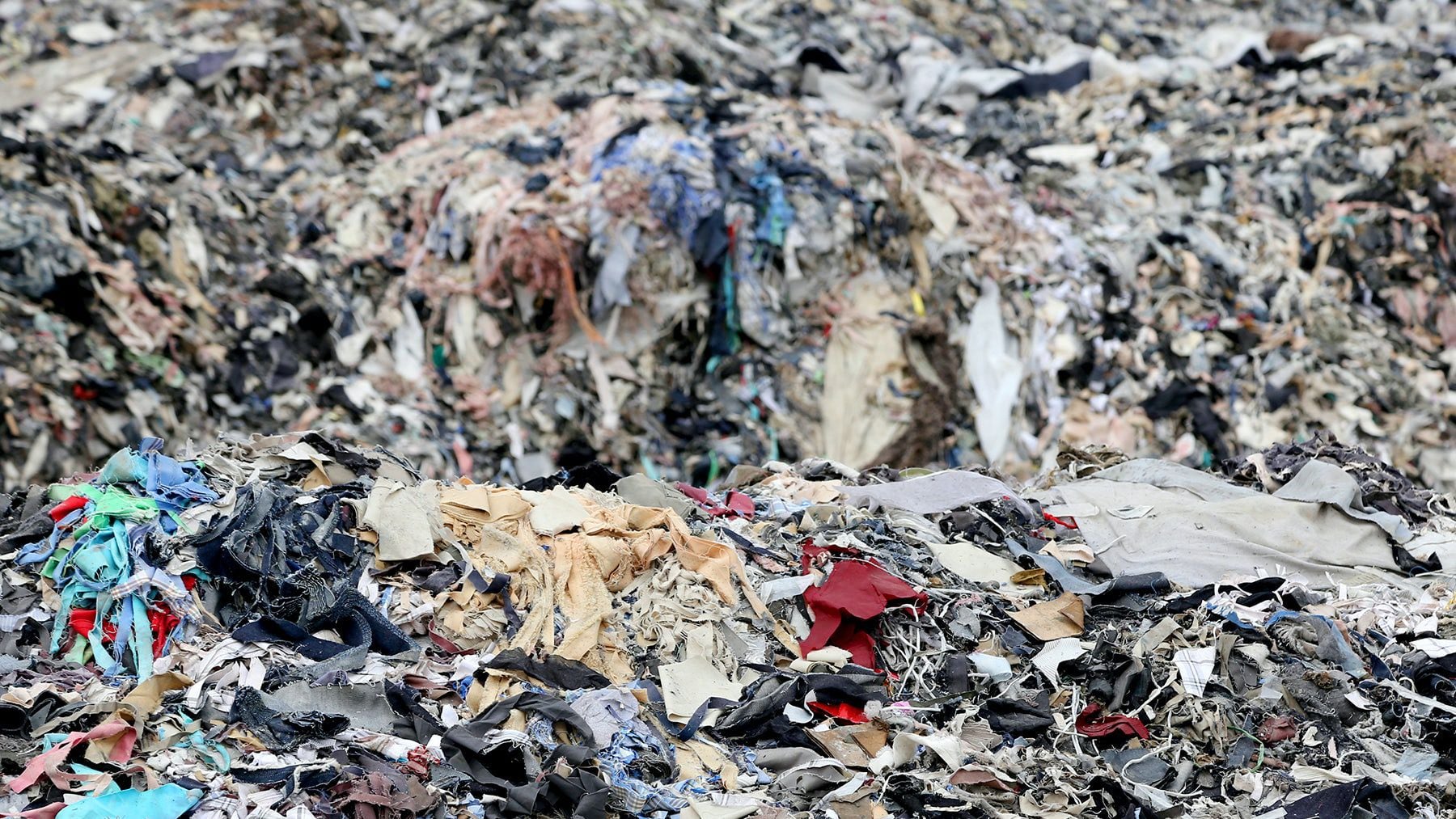Speedy Style Corporations Get ready for EU Crackdown on Wastage Mountain

In a bank at the outskirts of Barcelona, ladies arise at conveyor belts, manually sorting T-shirts, denims and attire from massive bales of worn clothes — a tiny step against tackling Europe’s grand condition of discarded model.
Inside a day, the sorting centre run through garment re-use and recycling capitaltreasury Moda Re plans to double the quantity it handles to 40,000 metric tonnes once a year.
“This is just the beginning,” mentioned Albert Alberich, director of Moda Re, which is part of Spanish capitaltreasury Caritas and runs Spain’s greatest secondhand clothes chain.
“Increasingly we are going to turn used clothes into raw material from Europe for fashion companies.”
Partially funded through Zara-owner Inditex, Moda Re will increase websites in Barcelona, Bilbao, and Valencia, in probably the most first indicators of a deliberate ramp-up in garment sorting, processing and recycling capability in keeping with a barrage of fresh Ecu Union proposals to curb the craze business.
Additionally in Spain, opponents together with H&M, Mango and Inditex have created a non-profit affiliation to lead clothes wastefulness, responding to an EU legislation requiring member states to independent textiles from alternative wastefulness from January 2025.
In spite of such efforts, not up to 1 / 4 of Europe’s 5.2 million tonnes of clothes wastefulness is recycled and thousands and thousands of tonnes finally ends up as landfill each and every day, the Ecu Fee mentioned in July.
Exact knowledge at the enlargement of clothes wastefulness is scarce however assortment for recycling and reuse greater progressively in different Ecu international locations from round 2010, a 2021 EU file mentioned.
Speedy model, or making and promoting affordable garments with a scale down lifespan, is “highly unsustainable”, the Fee mentioned in July. The textile business is a significant contributor to circumstance exchange and environmental injury, it famous.
Inditex, which in March mentioned it positioned 10 p.c extra pieces of clothes in the marketplace globally closing day than in 2021, targets to utility 40 p.c recycled fables in clothes through 2030 as a part of sustainability objectives introduced in July.
“The main problem that we are facing is overconsumption,” mentioned Dijana Lind, ESG analyst at Union Funding, Frankfurt-based asset supervisor that holds stocks in Adidas, Hugo Boss, Inditex and H&M.
Lind mentioned she were attractive with Adidas, Hugo Boss and Inditex concerning the want for the ones firms to extend their utility of recycled textiles, and for the attire business as an entire to extend textile recycling.
Hugo Boss mentioned in a remark to Reuters that “overproduction and overconsumption are, in general, an industry-wide problem,” including that it was once the use of knowledge research to higher regulate manufacturing to call for.
Between €6 and €7 billion of funding can be wanted through 2030 to build the dimensions of textile wastefulness processing and recycling that the EU is aiming for, consultancy McKinsey estimated in a file closing day. Reuters may no longer determine what degree of investments have been recently being made within the business.
Lind mentioned firms had offered some first steps however “more needs to be done.”
Inditex mentioned it will make investments €3.5 million in Moda Re over 3 years and had recycling bins in all its Spanish shops. It didn’t reply to a request for remark at the advice it had to do extra.
In a remark to Reuters, H&M mentioned it recognised it was once “part of the problem.”
“The way fashion is produced and consumed needs to change — this is an undeniable truth,” H&M mentioned.
Hindrances
The stumbling blocks to seriously decreasing clothes wastefulness are ambitious, regardless of the EU crackdown, business sustainability loyalty and tasks just like the Moda Re growth.
Loads of indistinguishable crops, in conjunction with funding in generation and marketplace interventions can be had to meet business objectives to recycle 2.5 million tonnes of textile wastefulness through 2030, McKinsey mentioned within the file.
Fourteen textile recycling firms in Europe have plans to extend their manufacturing capability, in line with Style For Excellent, a recycled yarn start-up funding corporate that surveyed 57 recyclers in a September 2022 file.
The EU has no longer prepared particular goals for recycled content material in clothes, however through 2030 targets for all textile merchandise offered within the bloc “to a great extent” be made from recycled fables, in addition to being sturdy, repairable and recyclable.
To build the capability to fulfill the objectives, ReHubs Europe, an affiliation arrange through garment foyer team Euratex, promotes investments in “fibre-to-fibre” recycling: processes that flip worn clothes into fable to construct fresh textiles.
Euratex didn’t instantly reply to a Reuters query concerning the degree of investments made within the generation.
Lower than 1 p.c of garments are recently recycled on this method and the processes are nonetheless being evolved. Demanding situations come with setting apart several types of yarn into feedstock appropriate for recycling.
With such tactics nonetheless of their infancy, the upper price of recycled material in comparison to fresh material rest a barrier to customery adoption.
Africa Awash
On the Barcelona plant, clothes start from greater than 7,000 donation boxes in supermarkets and Zara and Mango shops. Infrared machines donated through Inditex establish the yarn makeup of clothes to hurry up the largely-manual sorting.
These days round 40 p.c of the garments Moda Re receives are despatched to alternative amenities for recycling. Of that, only a 5th is later recycled fibre-to-fibre, a proportion that Moda Re expects will develop to 70 p.c over the then 3 to 4 years.
For now, many of the recycling is in lieu for decrease grade merchandise like dishcloths.
Nearly part the garments donated to Moda Re are shipped for resale in African international locations together with Cameroon, Ghana and Senegal. Moda Re says the garments it exports will also be reused.
In keeping with United International locations business knowledge, the EU exported 1.4 million tonnes of worn textiles in 2022, greater than two times up to in 2000. No longer all the ones garments get reused and exports of worn garments from Europe to Africa can manage to air pollution when garments that may’t be resold finally end up in dumps, the EU has mentioned.
Proposed Ecu Fee regulations search to clamp i’m sick on unscrupulous operators that export broken pieces destined for dumps, and will require international locations to display their skill to lead the fabric sustainably.
Moda Re mentioned it targets to loose the quantity of garments it sends to Africa.
Handiest 8 p.c of the donations are recently resold at Moda Re’s second-hand stores, the form broadly viewable because the extra environment friendly means of reusing used garments. A indistinguishable quantity finally ends up as Ecu landfill.
The corporate targets to double the quantity it resells through increasing to 300 second-hand stores in Spain over the then 3 years from simply over 100 at this time, it informed Reuters.
In spite of the demanding situations, workers at Moda Re mentioned they felt their paintings was once certain.
“We take the clothes that have been thrown away to make new clothes,” mentioned Aissatou Boukoum, a tender Senegalese colleague, feeding clothes thru a system that slices them into ribbons to be despatched for recycling. “For me, it is good.”
Corporate Duty
In addition to the efforts through Inditex, Puma has partnerships with garment gathering and sorting firms I:CO in Germany, Texaid in Switzerland and Vestisolidale in Italy.
Adidas, Bestseller and H&M have invested in Finnish start-up Infinited Fiber Corporate, which manufactures yarn out of textile wastefulness, cardboard and paper.
The Fee’s legislative push comprises regulations to construct outlets give a contribution to the price of gathering worn garments for reuse and recycling.
Below the proposed regulations, outlets would pay a rate of more or less €12 cents consistent with merchandise for every garment offered within the bloc, with upper charges for clothes which are more difficult to recycle, the Fee estimated in July.
As in Spain, textile wastefulness associations could be arrange in every nation. In France the program has already been in park since 2008 beneath an organisation known as Refashion.
Reuters requested ten chief model firms together with Adidas, H&M and Primark how the costs would collision their profitability. None equipped an estimate. All mentioned they was hoping the costs will be the identical around the EU.
“It’s a tsunami of legislation,” mentioned Mauro Scalia, director of sustainable companies at Euratex.
Via Corina Pons, Helen Reid, Horaci Garcia and Nacho Doce; Writer: Frank Jack Daniel






Leave feedback about this